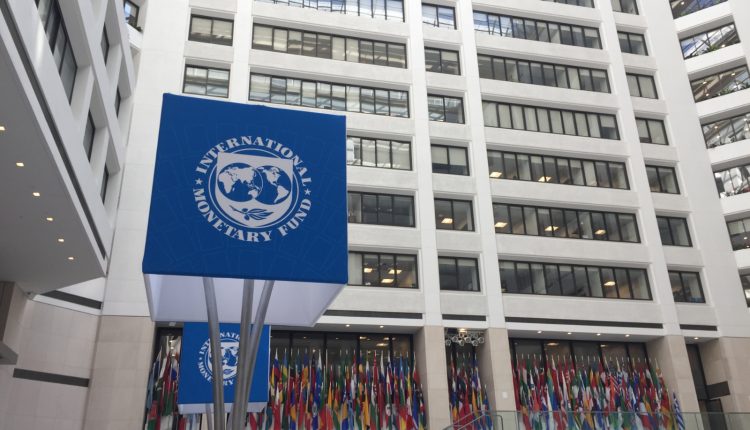IMF approves $2.772 billion in emergency support to Egypt to address coronavirus
The executive board of the International Monetary Fund (IMF) has approved on Monday a $2.772 billion worth of emergency financing assistance for Egypt to address the coronavirus impact.
Under the IMF’s Rapid Financing Instrument (RFI), the financial assistance aims to meet Egypt’s urgent balance of payments needs stemming from the outbreak of the pandemic.
The RFI will help alleviate Egypt’s pressing financing needs, including for health, social protection, and supporting the most impacted sectors and vulnerable groups.
“The Executive Board of the International Monetary Fund (IMF) approved Egypt’s request for emergency financial assistance of SDR 2,037.1 million (US$ 2.772 billion, 100 percent of quota) under the Rapid Financing Instrument (RFI) to meet the urgent balance of payments needs stemming from the outbreak of the COVID-19 pandemic.”
“Purchase under the RFI entails exceptional access due to outstanding credit under the previous extended arrangement under the Extended Fund Facility.”
The pandemic and global shock pose an immediate and severe economic disruption that could negatively impact Egypt’s hard-won macroeconomic stability if not addressed, the IMF added in a statement.
“Egypt achieved a remarkable turnaround prior to the COVID-19 shock, carrying out a successful economic reform programme supported by the IMF’s Extended Fund Facility (EFF) to correct large external and domestic imbalances.”
However, the IMF said the pandemic and global shock pose an immediate and severe economic disruption that could negatively impact “Egypt’s hard-won macroeconomic stability if not addressed.”
“The authorities have launched a comprehensive package to contain the economic impact of the COVID-19 shock. The RFI will help alleviate some of the most pressing financing needs, including for spending on health, social protection, and supporting the most impacted sectors and vulnerable groups.”
The IMF added that it remains closely engaged with the Egyptian government and the Central Bank of Egypt and stands ready to provide policy advice and further support, as needed.
Following the Executive Board discussion, Geoffrey Okamoto, IMF’s First deputy managing director and acting chair, said: “The COVID-19 pandemic has drastically disrupted people’s lives, livelihoods, and economic conditions in Egypt.”
“The global shock has resulted in a tourism standstill, significant capital flight, and a slowdown in remittances, resulting in an urgent balance of payments need.”
Okamoto said the Egyptian government had responded to the coronavirus crisis with a comprehensive package aimed at tackling the health emergency and supporting economic activity.
“The authorities acted swiftly to allocate resources to the health sector, provide targeted support to the most severely impacted sectors, and expand social safety net programs to protect the most vulnerable.” Geoffrey Okamoto, IMF’s First deputy managing director and acting chair,
“Similarly, the Central Bank of Egypt adopted a broad set of measures, including lowering the policy rate and postponing repayments of existing credit facilities.”
The emergency support under the RFI will help limit the decline in international reserves and provide financing to the budget for targeted and temporary spending, aimed at containing and mitigating the economic impact of the pandemic, the IMF official added.
“The authorities are committed to full transparency and accountability on crisis-related spending including through publishing information on procurement plans and awarded contracts, as well as ex-post audits of such spending”
“Additional expeditious support from multilateral and bilateral creditors will be needed to close the remaining balance of payments gap, ease the adjustment burden, and preserve Egypt’s hard-won macroeconomic stability.
“As the crisis abates, measures to lower the debt level would need to resume along with continued implementation of structural reforms to increase the role of the private sector to achieve higher and inclusive private sector-led growth and job creation, unlocking Egypt’s growth potential and entrenching resilience.”
Egyptian Prime Minister Moustafa Madbouly announced in late April that the country asked the IMF for a new financial support under both a Stand-By Arrangement (SBA) and the Rapid Financing Instrument (RFI), to shield the country’s economy from the fallout of the pandemic.
Later in the same day of announcing the request, IMF’s managing director Kristalina Georgieva said in a statement the Fund “fully supports” Egypt’s aim to safeguard the significant gains made under its successful Fund-backed reform programme.
Georgieva further said that the RFI would enable Egypt to “address any immediate balance of payments needs and support the most affected sectors and vulnerable groups of people,”
Egypt is one of many African nations turning to the Washington-based lender as the pandemic is affecting economies worldwide. The IMF has already agreed a total of $10.4 billion in emergency coronavirus funding across Africa during recent weeks, including Nigeria, Kenya, Tunisia, and Mozambique.
In late 2019, Egypt completed an IMF-backed reform programme which included a three-year $12 billion loan and sought to revive investors’ confidence.


